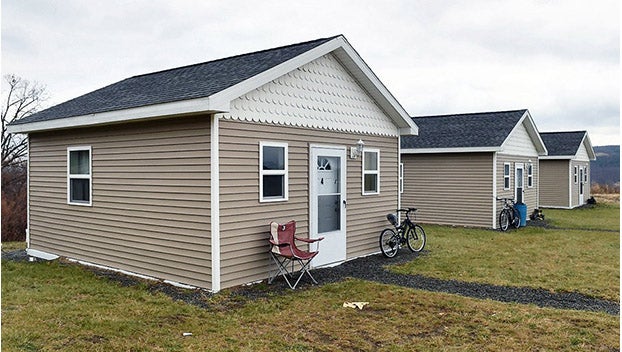Project to help homeless moves ahead
Published 7:10 pm Saturday, March 26, 2022
|
Getting your Trinity Audio player ready...
|
STEPS is moving one step closer to its mission of reducing poverty throughout the region.
For years the company has provided temporary sheltering and case management services for the homeless in Prince Edward and surrounding counties but most recently it’s taking on the idea of building tiny homes for those in need.
The tiny house project would serve the homeless from Amelia, Buckingham, Cumberland, Lunenburg, Nottoway and Prince Edward.
“The time is nearing where the agency with a heart for people will be able to do so much more than provide a warm motel room to sleep,” said STEPS President and CEO Sharon Harrup.
“Our solution has been to focus on the immediacy of their situation. It gets them out of the cold, but some of the issues the homeless deal with can’t be addressed by case managers in a few days. We need something better.”
STEPS reached out to the community in October of 2020 and the Heartland Homeless Housing Taskforce of partners was up and running. Representatives from businesses, government entities, non-profit agencies, churches and service providers worked on a solution — eventually developing a plan to build eleven tiny homes surrounding a community center near Farmville.
According to STEPS Vice President of Housing Shawn Rozier the tiny houses would come in two sizes and house individuals, couples or families; the homeless would stay from 60-90 days, enough time (with case management guidance from STEPS’ staff) to help them get on more solid financial ground and enhance their opportunity for success once they leave.
“We haven’t finalized a site but, fueled with the help and support of this taskforce, we have a viable plan,” said Rozier.
Rozier said Farmville offers the perfect location — it is central to the counties served in the region, plus it could offer water and sewer options, as well as public transportation.
A tiny house is space limited, but it would provide basic living necessities as the homeless work to get on track, Rozier explains. This is a temporary stop, not a permanent housing solution.
“If we can have everyone together on site, we can provide a more robust level of service in terms of case management activities and opportunities for them to search for work in a computer lab on site,” he said. “We can also have different partners come into the community center where they can offer services. Having everyone together is much better than having them spread out throughout the region staying in hotels.”
Rozier added, “It’s an opportunity to provide intensive oversight and guidance in person to help them get their lives on a solid foundation.”
The task force (excluding the cost for the land) projects an $820,344 cost to construct a community center, eleven furnished, climate controlled tiny homes, water and sewer connections to each individual house associated with the project and site preparation.
“When you consider the average cost of a home in this economy, this is a fiscally responsible option to address this problem,” Harrup said. “Plus, it is an investment into the lives of people in need. This would help address the root of individual/family homelessness issues so that clients can build a better life.”
There are no emergency shelters in the region, which leaves STEPS the limited option of placing the homeless in motels and assisting with case management services. STEPS provides the help through the Virginia Homeless Solutions Program, which is funded by the Virginia Department of Housing and Community Development (VDHCD). Additional support through contributions, including a $75,000 grant from Centra Health, are essential in providing services.
Unfortunately, the numbers are growing across the region. STEPS assisted 368 individuals and 192 households in fiscal year 2020-21. In the first six months of the current fiscal year, STEPS served 231 individuals in 134 households — putting the agency on track for a 25 % increase in individuals and 40 % increase in households in the current year.
Who are the homeless? An individual or family that has no place to stay at night — not even with family or friends — and would be outside or otherwise in a place not meant for human habitation.
Construction costs coupled with land acquisition for the tiny house project could send the total over $1 million, but funding is potentially available. Rozier has reached out to the counties and the Town of Farmville served in the region — none of which has an available emergency shelter. Each of the localities has received American Rescue Plan Act funds earmarked for projects to mitigate economic harm created by the pandemic.
The data is clear that the pandemic has had a rippling effect on jobs in the region. Many were living paycheck to paycheck at the start of the pandemic and, out of a job, were unable to pay rent and were evicted.
Many cannot afford rent even if they could find another place.
“This is the best opportunity we have ever had to get some forward momentum for a project like this,” Harrup said. “This is really needed, and we are all working together to assure that all of the pieces come together.”
Those facing homelessness can call STEPS’ homeless housing line at 1-855-955-5501 to request assistance with emergency shelter.






